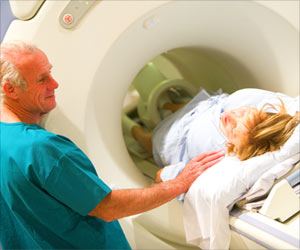Obese people need a higher radiation dose during x-ray. This high dose of x-ray radiations may increase the risk of developing cancer, reveals a new study.

‘Obese patients who undergo an x-ray are at a higher risk of developing cancer due to the higher dose of radiation, reveals a new study.’
Read More..




The University of Exeter and Musgrove Park Hospital, Taunton, led the study of more than 600 patients who had undergone surgery for weight loss.Read More..
The researchers found 630 patients with an available history of radiation dose in X-rays carried out between 2007 and 2015. The patients in the study had a body mass index of up to 50, indicating they were severely obese and nearly twice the weight they should be for their height. They had all undergone procedures such as the fitting of gastric bands, gastric sleeves or gastric bypasses at Musgrove Park Hospital, a national centre of excellence for bariatric surgery and diagnostic imaging.
The team found that obese patients received much higher doses of radiation during x-ray than normal weight people, which is necessary due to the increased amount of tissue to be imaged. The study concluded that the overall risk of cancer caused by the extra radiation was more than double (153%) that of normal-weight people undergoing X-ray. However, the risk of cancer from X-ray is low. In 2015-16, 22.6 million X-ray procedures were carried out in England. Up to 280 cancers may have been related to X-ray related radiation dose. X-rays are recognized as saving countless lives by detecting abnormalities in the body.
Karen Knapp, Associate Professor of Musculoskeletal Imaging at the University of Exeter, who oversaw the study, said: "X-rays are an extremely important diagnostic tool, and radiographers do their utmost to minimize the risk to patients. However, our findings highlight the implications of increased radiation doses in severely obese patients. Although the risk of cancer from X-ray is very low, we urgently need more research in patients who are overweight and obese, so we can understand how to minimize doses in this group and feed into far more robust guidelines around radiation, in turn, to minimize that risk."
To create an X-ray image, radiographers project radiation-ray photons through the body. The dose differs depending on the body part and the size of the patient. It takes a higher dose to project through an abdomen than a chest, and higher doses are needed for larger patients.
Advertisement
However, currently, there are no guidelines on how to minimize radiation doses in obese patients. Now, the researchers believe this is needed to minimize the risk of cancer exposure in this group.
Advertisement
"As well as the doses of radiation given to the patient, many technical factors contribute to the image quality of an X-ray. We already started working on this issue in an attempt to produce prediction models that can aid radiographers to choose the best technical factors based on the patient's size."
Richard Welbourn, Consultant Upper GI and Bariatric Surgeon at Musgrove Park Hospital, a co-author on the paper, said: "Patients should not be put off having the X-rays they need to investigate disease as they are often crucial in getting the right treatment. With two-thirds of the UK population overweight or obese, the results highlight how important it is for the NHS to implement strategies to treat this epidemic. Musgrove Park Hospital, Taunton, is the only accredited UK International Centre of Excellence in bariatric, or weight loss, surgery."
Source-Eurekalert















